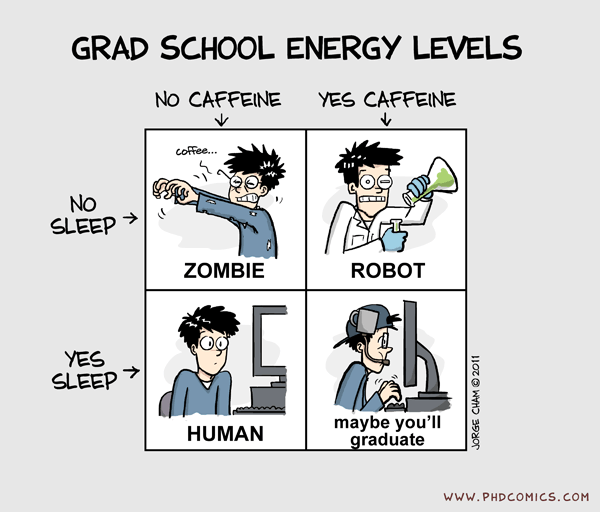Energy Level Playbook
Knowledge workers have limited energy, and their work state can vary from good to bad. What should you do when your state is not optimal? Today, we will discuss the Energy Level Playbook.

Energy states have levels, divided into four tiers.
- Zombie - Essentially unable to do anything.
- Robot - Can perform tasks that require cognitive ability but cannot handle complex tasks.
- Mortal - Capable of handling relatively complex tasks but cannot maintain high concentration for long periods.
- Transcendent - Feels capable of doing anything.
So, what can you do in these states?
-
In Zombie state? Don't work or do mindless tasks. (Menial work)
- Take a timely outdoor walk or run. Moving your body can increase blood flow to the brain while providing a suitable "distraction." Even standing up and walking a few steps every hour is a good break.
- Return to nature; being surrounded by flowers, trees, mountains, and rivers can be restorative. Even looking at pictures of nature can have a noticeable effect on the brain. Changing your desktop wallpaper to natural scenery can also help.
- Gather with friends, chat, and have a drink. It must be friends, for the sake of friendship, not for "networking."
- Start with a cup of coffee, aiming for a caffeine content of about 200 milligrams; set a timer on your phone for 25 minutes; begin to rest; and get up immediately when the 25 minutes are up.
-
In Robot state? Do preset tasks. (Basic work)
- Check your TODO list for some simple tasks.
- Implement existing or very familiar software designs.
- Write documentation or clean up notes.
- Skim read.
-
In Mortal state? Engage in exploratory work. (Exploratory work)
- Design new things.
- Communicate, persuade, and present (avoid these in the first two states).
- Plan.
- Read deeply.
-
In Transcendent state? Innovate. (High-level work)
- Tackle difficult tasks that require long periods of focus.
- Conduct comprehensive research.